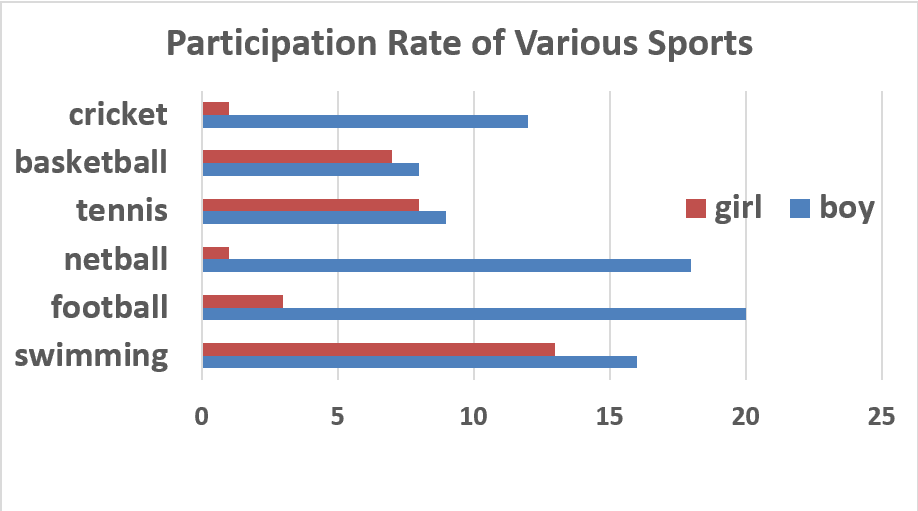练习托福口语时,考生如果只是遵照练习题来进行训练,能够提升的往往只是应试能力。今天小编给大家带来托福口语课外练习提升技巧经验指点,希望能够帮助到大家,下面小编就和大家分享,来欣赏一下吧。
【备考提分】托福口语课外练习提升技巧经验指点
托福口语课外练习技巧经验:组队练习
选定10个你想掌握的单词,和小伙伴组队用这10个单词说出一个故事。又锻炼口语和表达方式,又能帮助强化记住单词。
托福口语课外练习技巧经验:不要怕犯错
以前我很担心自己犯了错误,别人会笑话我,所以即使有发言的机会也从来不敢多说。有人就跟我说,你想象一个正学着中文的外国人来跟你用中文对话,你会觉得因为他中文发音不好而嘲笑他吗?根本不会。
而且很多英语国家的人这一生也都不需要再去学另外一门语言,他们根本就没资格说你英文说的不标准。
托福口语课外练习技巧经验:说慢一些
在我跟着录音、电视剧练了一段时间后, 为了显出自己的流利,我就加快语速,想显得自己水平很高的样子。但后来发现那样做根本没有益处:一方面单词发音练得不准,别人很难听懂;另一方面因为说得太快,没有时间思考句子结构和语法,总是犯一些本不该犯的语法错误。
举例来说,“You have to make sure your children are taken care of by the babysitter”。这句话里,of这个词如果不有意识地放慢速度就很容易被忽略掉,而一旦忽略自然就变成口语错误了,而且还是相当明显的错误,所以适当放慢速度是很有必要的。
托福口语课外练习技巧经验:按照话题联系
找一些有争议的话题,或是一些你感兴趣的话题,试着用英文来表达自己的看法。刚开始不能一次性表达大段的思想时,可以先写下来,然后读几遍,再不看稿子重复说几遍。熟练之后就可以不用写出整个句子,而是关键词句子来进行复述。 不要强求口音:每一个人说英语都会有口音,不过作为我们的外语,先让对方轻松理解是第一目的。我认为在中国的时候,“标准口音“是最好的口音。如果到了国外,会不可避免地被当地口音影响,到那时候再纠结自己到底要练哪种口音会比较好。
托福口语 巧断句 更从容 拿高分
在影响托福口语高分的因素中,断句是非常重要的一个。因为托福口语是电脑录音,评判者通过听录音来评估分数,考虑到评卷者的“听觉疲劳”,恰当断句才是有效传达信息的关键。所以建议考生们在托福口语练习中不要一味求快,而要注意断句,掌握托福口语技巧,将自己要表达的信息表达完整清晰。 例: The Great Wall was the greatest man-made military defense structure in ancient China。这个句子在托福口语表达中就是一个能拿高分的句子,但如果大家把他一口气读完的话,这个句子的美感就体现不出来了,而且在录音的情况下很可能还会让评卷者无法听清楚。于是我们需要借助断句来表达,下面我用/作为断句的标志,用〉来点明重音,于是我们可以这样来处理这个句子:
The Great Wall/was the greatest /man-made military defense structure/in ancient China。
断句可以稍稍停顿,或者是拉长词的读音,我们在wall 的时候拉长读音,在greatest和structure后稍作停顿,于是这个句子听起来就更加容易理解,因为我们把句子的意群The Great Wall、was the greatest、man-made military defense structure、in ancient China划开了,这样的托福口语听起来才更能拿高分。所以在这里,提醒大家,为了使表达效果更好,使语言听起来更加悦耳,考生不但要注意发音,还要注意说话时的断句。
断句对于托福口语高分来说的意义在于让考官不用费力听就可以很轻松地得到自己想要听到意群,这是在大家的口语实力上面进行的外包装,没有这层漂亮的包装,大家的口语实力就会大打折扣,所以大家在托福口语练习中一定要注意断句。
好习惯注定托福口语高分
1. 每天坚持练习口语一两个小时,锻炼你说英文的肌肉习惯
2. 养成大声读英文的习惯,再尝试着用腹式一口气练习,这样使你说出的英文更有底气,更流畅。
3.每天早晨起床后,张大嘴,啊五分钟,这样有利于练好你的腹式一口气。
4. 养成每天去运用的习惯,学过了很多东西,要经常拿出来晒太阳,要学会卖弄英文,你可以找Partner ,也可以对着天空,大树,小鸟对话,只要把这些语言运用自如了,变成你自己的了,什么都好!
5. 学会正确使用复读机,先精听,然后去读,去听自己的发音,找出与磁带录音的不同,直到自己的发音与磁带的发音一样了,再接着听下一个。
6. 要有专一的精神,不要两天学美式的,两天学英式的,我们说这两种发音都挺好的,所以,你喜欢哪种就模仿哪种,而且要保证你所模仿的材料从始到终几乎是那一种发音。
7. 要敢说英文,不要怕犯错。记住:在你用正确的方法练习之后,你犯的错越多,凭着语感纠正的错误也越多,进步也就越大!学习外语的好习惯。
8. 老师,我每天都模仿了一个小时,可以已经十天了,还是读不好。
做得很好,习惯是养成的,只要你用正确的方法去模仿,每天坚持去模仿就是一种好习惯,当然,并不是说我模仿一个小时,发音就能跟磁带一模一样,而是每模仿一次就会进步一点点,这只是时间的问题,也许第十一天,第十二天,就读好了呢?最重要的是你坚持每天去模仿,养成一天不模仿就浑身难受的好习惯!
9. 每天找人去运用,学一句用一句的好习惯,语言的学习是边模仿边练习,边运用。不能说等我学好了会说了才去说,而是能说几句就说几句,几天说一句比十年说不出几句要强得多 。
10. 每天坚持复习的好习惯,学过的东西不能丢了,要每天都复习,把练习过的句子拿出来做口译。
同学们除了坚持执行好以上10大习惯,还应该时刻关注自己的学习进度,充分了解自己的英语口语水平,在一段时间的学习后给自己做测试,如果有所进步就该保持现在的学习方式,反之就应该检讨一下自己还有哪些不足之处,考虑是否应该改变学习方式。
托福口语之“生病”的表达方式
(1)一般病情:
He feels headache, nausea and vomiting. (他觉得头痛、恶心和想吐。)
He is under the weather. (他不舒服,生病了。)
He began to feel unusually tired. (他感到反常的疲倦。)
He feels light-headed. (他觉得头晕。)
She has been shut-in for a few days. (她生病在家几天了。)
Her head is pounding. (她头痛。)
His symptoms include loss of appetite, weight loss, excessive fatigue, fever and chills. (他的症状包括没有食欲、体重减轻、非常疲倦、发烧和发冷。)
He feels exhausted or fatigued most of the time. (他大部份时间都觉得非常疲倦。)
He has been lacking in energy for some time. (他感到虚弱有段时间了。)
He feels drowsy, dizzy and nauseated. (他觉得昏昏欲睡,头晕目眩和想吐。)
He feels as though everything around him is spinning. (他感到周围的东西都在打转。)
He has noticed some loss of hearing. (他发觉听力差些。)
She has some pains and itching around her eyes. (她眼睛四周又痛又痒。)
(2) 伤风感冒:
He has been coughing up rusty or greenish-yellow phlegm. (他咳嗽带有绿黄色的痰。)
His eyes feel itchy and he has been sneezing. (他眼睛发痒,而且一直在打喷嚏。)
He has a fever, aching muscles and hacking cough. (他有发烧,筋骨酸痛和常常咳嗽。) (hacking = constant)
He coughed with sputum and feeling of malaise. (他咳嗽有浓痰,而且觉得很虚弱。) (malaise = debility)
He gets a cold with a deep hacking cough. (他伤风咳嗽。)
He has a headache, aching bones and joints. (他头痛,骨头、关节也痛。)
He has a persistent cough. (他不停地在咳。) 或
He has bouts of uncontrollable coughing. (他一阵阵的咳嗽,难以控制。)
He has hoarse and has lost his voice sometimes. (他声音嘶哑,有时失声。)
He has a sore throat and a stuffy nose. (他嗓子疼痛而且鼻子不通。)
His breathing is harsh and wheezy. (他呼吸时,有气喘似的呼哧呼哧作响。)
He has a stabbing pain that comes on suddenly in one or both temples. (有时突然间太阳穴刺痛。)
He has a runny nose, sneezing or a scratchy throat. (他流鼻水,打喷嚏和喉咙沙哑。)
(3) 手脚毛病:
His both hands and feet ache all over. (他两手两脚都很酸痛。)
He has pain on the sole of his feet. (他脚底很痛。)
There is a wart-like lump on the sole of right foot. (我右脚底有个像肉疣般的硬块。)
His ankles look puffy and they pit when he presses them with his finger. (他的足踝好像肿了,用手按,就有小坑痕。) (pit = small dent form)(句里的 they 和 them 都是指 ankles)
The pain in his left foot is accompanied by redness and swelling. (左脚酸痛,并有红肿。)
The joints near his fingernails and knuckles look swollen. (指头和指节旁边的关节,似乎有肿大。)
He has numbness and tingling in his hands and fingers. (他的手和指头感到麻木和刺痛。)
His legs become painful following strenuous exercise. (激烈运动后,他的腿就痛。)
His knee is misshapen or unable to move. (他的膝盖有点畸形,也不能动。)
There are some swellings in his armpit. (他的腋窝肿大。)
He is troubled with painful muscles and joints. (他的筋骨和关节都痛。)
She is troubled by the pains in the back and shoulders. (她的后背和肩膀都痛。)
His knee has been bothering him for some time. (他的膝盖不舒服,已有一段时间了。)
(4) 睡眠不好:
He is sleeping poorly.(他睡不好)
He has difficulty in sleeping, inability to concentrate.(他不易入睡,也难集中精神。)
It is usually hard for her to fall asleep when she goes to bed at night.(她晚上就寝,很难入睡。)
He wakes during the night or early morning and finds it difficult to fall asleep again.(他晚间或清早醒来后,再也不能入睡。)
He has nightmares occasionally.(他有时做噩梦。)
(5) 呼吸方面:
His breathing has become increasingly difficult.(他呼吸越来越困难。)
He has to breathe through his mouth.(他要用口呼吸。)
He is short of breath, even when he has not been exercising, he is breathless.(他喘气;即使不运动,他也是上气不接下气。)
His cough is more like wheezing.(他的咳嗽有呼哧呼哧的响声。)
His cough is dry, producing no phlegm.(他是干咳,没有痰。)
He has coughed up blood.(他咳嗽有血。)
His nose stuffed up when he had a cold.(他感冒时鼻子就不通。)
He coughs up a lot of phlegm (thick spit) on most days.(他多半时间咳出浓浓的痰。)
He has a feeling of tightness in the chest or a feeling that he is suffocating.(他胸部觉得闷闷的,好像透不过气来。)
(6)口腔毛病:
He has pain in his teeth or jaw. (他的牙齿和下巴疼痛。)
He has some problems with his teeth. (他牙齿有问题。)
The tooth hurts only when he bites down on it. (他咬东西时,牙齿就痛。)
His gums are red and swollen. (他的牙床红肿。)
His tongue is red and sore all over. (他的舌头到处红和痛。)
His breath smells bad and he has a foul taste in his mouth. (他口里有怪味。)
His gums do bleed. (他牙床有出血。)
He has some sore swellings on his gum or jaw. (他的牙床和下巴肿痛。)
He has sore places on or around the lip. (他的嘴唇和周围都很痛。)
There are cracks at the corners of his mouth. (他的嘴巴角落破了。)
There are some discolored areas inside on his tongue. (他舌头里边有些地方颜色怪怪的。)
(7) 肠胃毛病:
He has a bloated, uncomfortable feeling after meal. (他饭后肚子觉得胀胀的,很不舒服。) 或
He feels bloated after eating.
He has bouts of abdominal pain. (他有一阵阵的肚痛。)
He feels bloated in his abdominal area. (他感到肚子胀胀的。)
The pain is mainly in the lower (upper) right part of the abdomen. (痛是在肚子下半部。)
He has nausea and vomiting. (他有恶心和呕吐。)
It is difficult or painful for him to swallow. (他吞下食物时会痛。)
He has passed more gas than usual. (他放…比平常多。)
He has been constipated for a few days. (他便秘了好几天。)
He suffers pains when he moves his bowels. (他大便时很痛。)
He has some bleeding from his rectum. (他的肛门出血。)
He has noticed some blood in his bowel movements. (他发觉大便时有些血。)
His bowel movements are pale, greasy and foul smelling.
or
His bowel movements are grey (or black) in color. (他的大便呈灰白色。)
He has trouble with diarrhea. (他拉肚子。)
(8) 血压等等:
His blood pressure is really up. (他的血压很高。)
High blood pressure is creeping up on him.
He has noticed frequent urination, increased thirst and unexpected tireness. (他发觉常常小便,非常口渴和更加疲倦。)
It is a chest pain that gets worse when he bends over or lies down. (他弯腰或躺下时,胸部更痛。)
He has noticed excessive sweating and unexplained tireness. (他体会到过度的出汗和难以解释的疲倦。)
He has a sharp pain in one area of his spine. (他的脊椎某部位刺痛。)
He has pain in other joints including hip, knee and ankle. (其它关节疼痛包括臀部、膝盖和脚踝。)
His eyes seem to be bulging. (他的眼睛觉得有点肿胀。)
He has double vision. (他的视线有双重影子。)
He feels there is a film over his eyes. (他觉得眼里有种薄膜似的东西,挡住视线。)
His vision in the right eye blurred. (他右眼视线模糊不清。)
He has had some earaches lately. (他近来耳朵有点痛。)
He has a repeated buzzing or other noises in his ears. (他耳朵常有嗡嗡的声音)
托福口语课外练习提升技巧经验指点相关文章:
★ 英语单词
托福口语课外练习提升技巧经验
下一篇:雅思图表作文中的优秀句型





